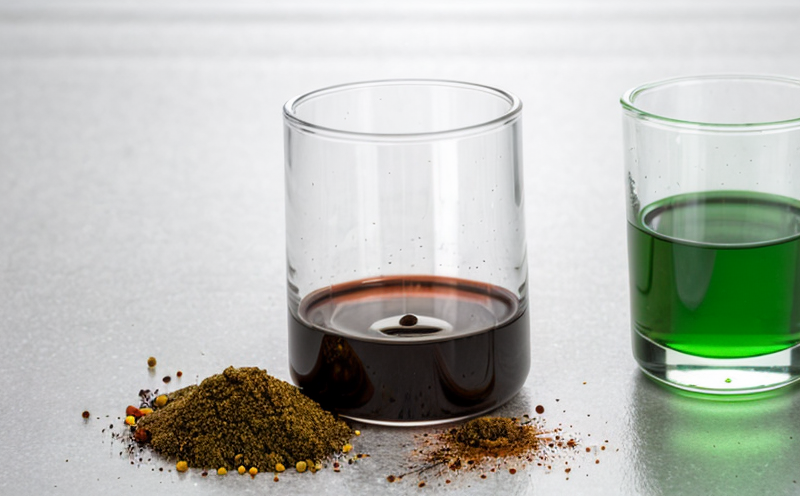ASTM E2563 Terrestrial Plant Toxicity Bioassay Test
The ASTM E2563 Terrestrial Plant Toxicity Bioassay test is a critical tool in environmental testing, designed to assess the potential adverse effects of chemical substances on terrestrial plants. This bioassay evaluates the toxicity levels and phytotoxicity of chemicals by measuring their impact on plant growth and development. It follows the stringent protocols outlined in ASTM E2563-18, which provides a standardized approach for testing the biological impacts of various materials.
This test is essential for industries involved in environmental risk assessments, pollution control, and chemical management. By using terrestrial plants as indicators of potential harm, this bioassay helps predict real-world effects on ecosystems. The test subjects include a range of plant species that are representative of common agricultural crops, ornamental plants, and wild flora found in the area where the chemicals may be released.
The process involves exposing the selected plant species to varying concentrations of the chemical substance under controlled conditions. Growth parameters such as root length, shoot height, chlorophyll content, and biomass production are then measured over a specified period. The results provide quantitative data on the degree of toxicity, which can inform decisions regarding permissible exposure levels.
The ASTM E2563-18 bioassay is particularly valuable for regulatory compliance and product development in sectors like agriculture, pharmaceuticals, and consumer goods. It ensures that new chemical formulations or amendments do not pose risks to soil ecosystems and surrounding plant life. This test also supports the design of safer products by identifying potential phytotoxic compounds early in the R&D process.
Compliance with international standards is crucial for maintaining market access and ensuring product safety. By adhering to ASTM E2563-18, organizations can demonstrate their commitment to sustainable practices and environmental stewardship. This bioassay serves as a cornerstone in the development of safer products and processes, contributing significantly to environmental protection efforts.
The test is applicable not only for new chemical substances but also for existing ones that are being repurposed or re-evaluated. It offers a reliable method for assessing changes in toxicity levels over time or under different conditions. This ensures ongoing safety assessments and helps prevent unintended adverse impacts on terrestrial ecosystems.
Applied Standards
The ASTM E2563 Terrestrial Plant Toxicity Bioassay test is strictly governed by the international standard ASTM E2563-18. This standard provides clear guidelines for selecting appropriate plant species, preparing samples, conducting experiments, and interpreting results. The protocol ensures that all tests are conducted under consistent conditions, thereby enhancing the reliability and reproducibility of findings.
- ASTM E2563-18: This standard outlines the procedures for using terrestrial plant bioassays to assess toxicity in soil.
- ISO 14970:2019: Although ISO standards are not directly applicable, they provide a broader framework for safety assessments that can complement ASTM E2563-18.
The standard emphasizes the importance of selecting representative plant species and ensuring that all test conditions are carefully controlled to mimic realistic environmental scenarios. This ensures that the results accurately reflect potential real-world impacts.
Benefits
- Compliance Assurance: Ensures regulatory compliance with international standards for chemical safety assessments.
- Risk Mitigation: Identifies potential risks early in the product development cycle, allowing for timely adjustments and improvements.
- Safety Enhancement: Provides data to support the design of safer products and processes.
- Environmental Protection: Contributes to the conservation of terrestrial ecosystems by preventing harmful chemical impacts.
The ASTM E2563 Terrestrial Plant Toxicity Bioassay test is a vital tool for organizations aiming to minimize environmental impact while maintaining product safety and regulatory compliance. By integrating this bioassay into their testing protocols, companies can make informed decisions that balance the needs of business with those of the environment.
Why Choose This Test
- Standardized Methodology: Adherence to ASTM E2563-18 ensures consistent and reliable results, enhancing trust in the testing process.
- Representative Data: The use of diverse plant species provides comprehensive data that reflects real-world conditions accurately.
- Rapid Results: The bioassay can provide insights into potential risks within a relatively short timeframe, facilitating timely decision-making.
- Regulatory Approval: Compliance with this test is often required for product registration and market entry in many countries.
- Cost-Effective: Early identification of problematic compounds reduces the need for extensive remediation or product recalls later on.
- Ethical Considerations: The bioassay promotes responsible chemical use, aligning with broader sustainability goals and ethical standards.
The ASTM E2563 Terrestrial Plant Toxicity Bioassay test is a cornerstone in environmental testing, offering a robust framework for assessing the biological impacts of chemicals. Its standardized approach ensures reliable data that can be used to inform critical decisions across various industries.





